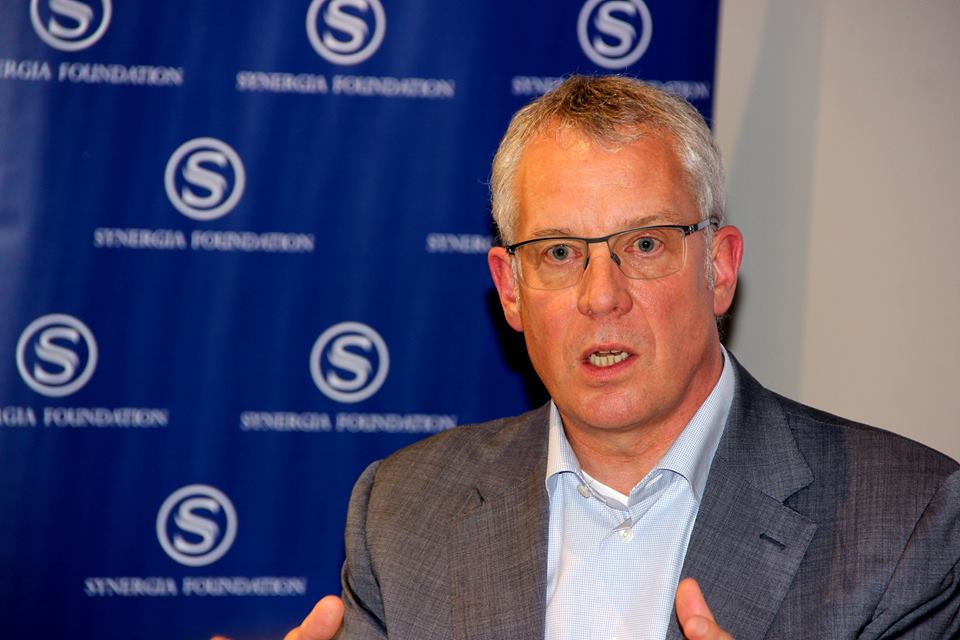Automation & How it’s Altering the Way we Work
February 9, 2018 | Expert Insights

In April 2017, the Synergia Forum hosted Patrick Nicolet, Group Executive Board Member of Capgemini to an audience of senior bureaucrats, diplomats, academicians & CEO`s, board members and journalists on the subject, “Automation and how it's altering the way we work”. The trigger to have this discussion was the report from a study with St. Martins School in Oxford University. The study concluded that more than 50% of all jobs that are repetitive, will be automated in the near future. The discussion tried to sensitise key stakeholders about automation, artificial intelligence and robotics and the impact it would have on the society.
Patrick Nicolet shared that there are the two distinct waves of automation. The first wave being Big Data where unstructured data is treated through the development of internet. The second wave is the analysis of the data, which has contributed to the creation of artificial intelligence. Robot process automation is a by-product of this automation. There are four components to be considered when industry transitions to automation - intelligent automation, monitoring of data, analytics and management of existing knowledge.
The advantages of automation are that it increases efficiency, productivity, effectiveness and adds value to the business and the industry. The impact of automation on labour is complex. Automation today has altered employer-employee relations; employees are focused on the quality of projects in comparison to the stability or permanency in the industry. Automation enables mobility. Bangalore has a technology density quite similar to West Coast of the US. People today are increasingly techno-savvy, and this has facilitated mobility in employment. Automation has simplified the work culture, thus enabling flexibility and efficiency. Automation creates new opportunities and attracts investments. It would result in a transformational change of several industries across India.
At the event, Mr. Gaurav Gupta, Additional Chief Secretary-Information and Technology, said that the Government of Karnataka has always been industry friendly. There are however, concerns over the future of jobs. The government believes that entrepreneurship can help in the transition to automation, he said. Mr.Srinivas Kandula, CEO, Capgemini India said that the sociology, economy and technology has always evolved together. Though there is fear, India has the talent and is capable of transitioning towards an automated industry, he said. Mr. Avinash Vashishta, Former Chairman & MD, Accenture pointed out that in order to cater to the needs of the clients, companies need to reimagine and restructure their business. He said start-ups alone cannot mitigate and act a solution to the problem of unemployment. Enterprises and start-ups should work together to help in a smooth transition in the industry.
The forum came to a consensus that unless the educational institutions meet the demands of the industry, India will not have any advantage in securing jobs in the future. The government, as well as the industry, needs to put in more effort towards bridging the gap.
Synergia Intervention
Automation is increasing both efficiency and effectiveness for businesses through innovative ways of working. In the future, it will be necessary to realign the relationship between industry & education and those between humans & machines. We might also have to consider establishing a universal income to cope monetarily with the incredibly fast and radical technology disruption.








Comments